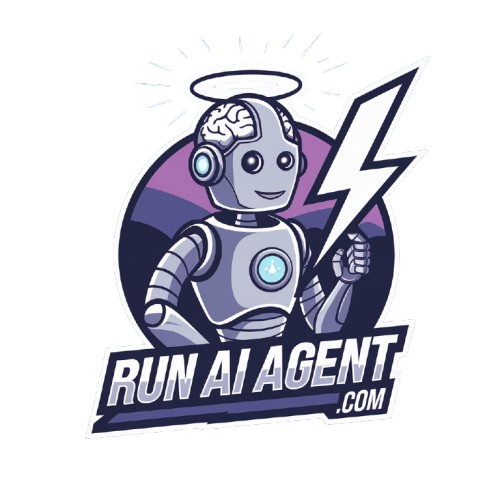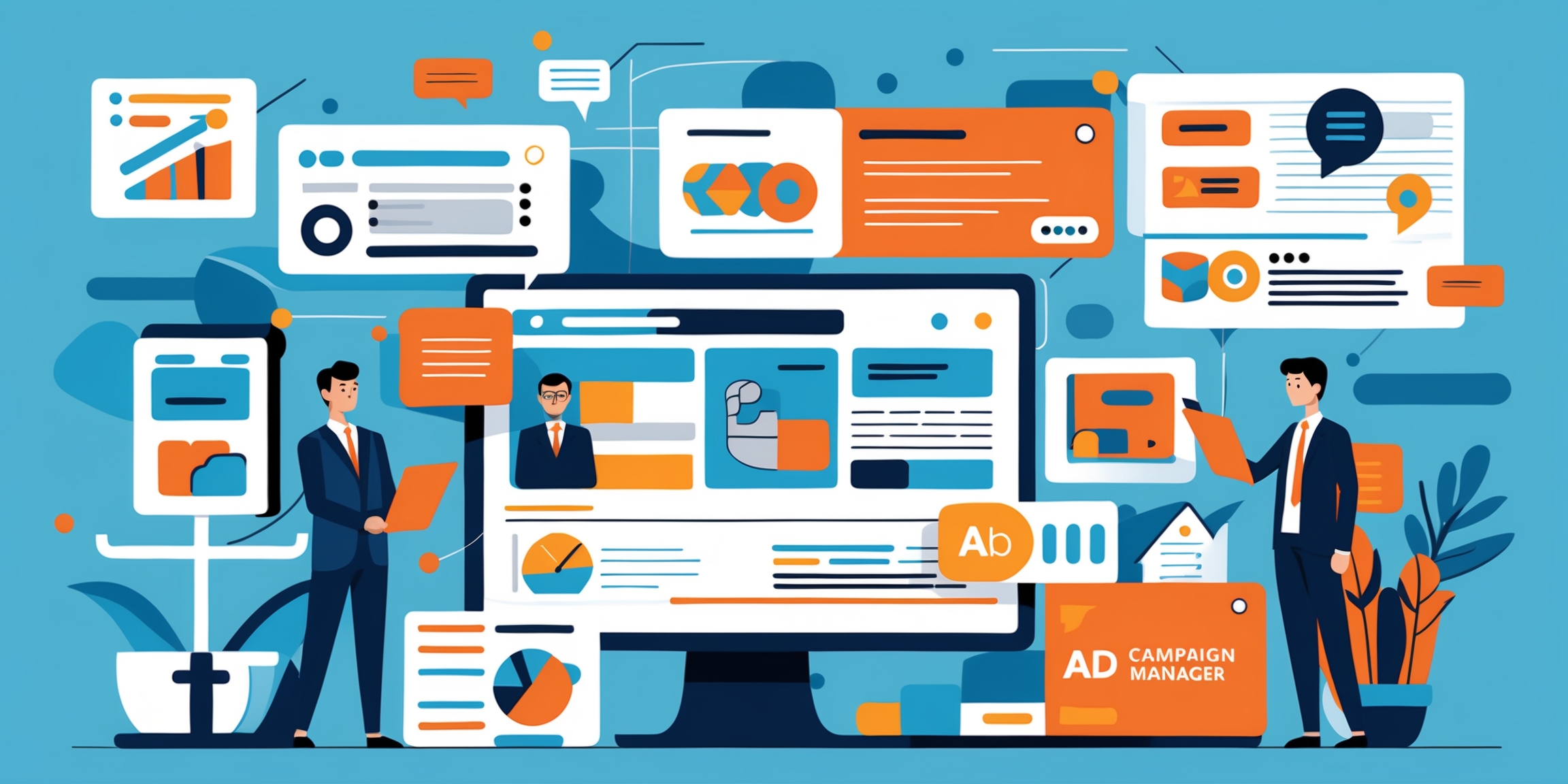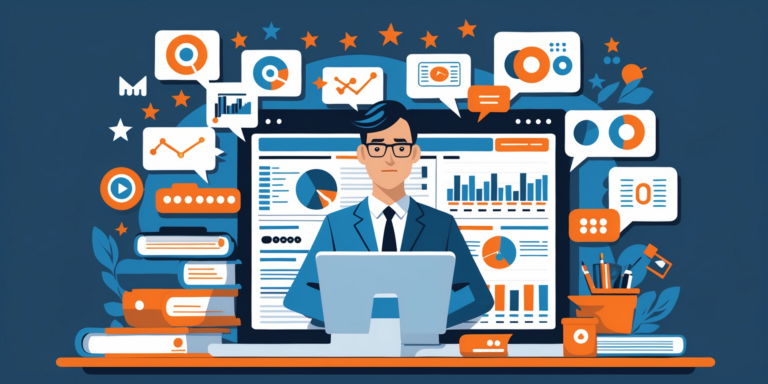Table of Contents
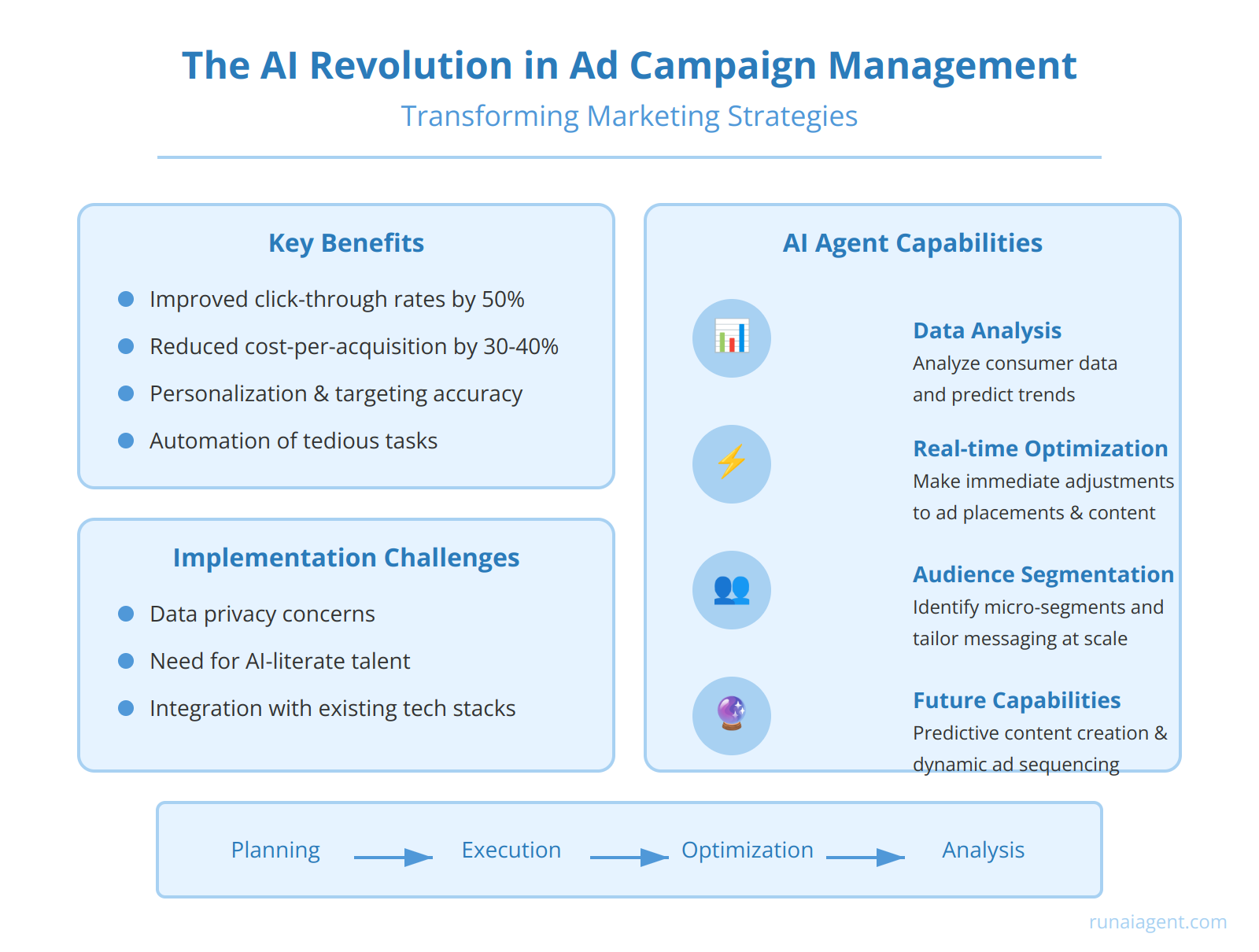
The AI Revolution in Ad Campaign Management: Transforming Marketing Strategies
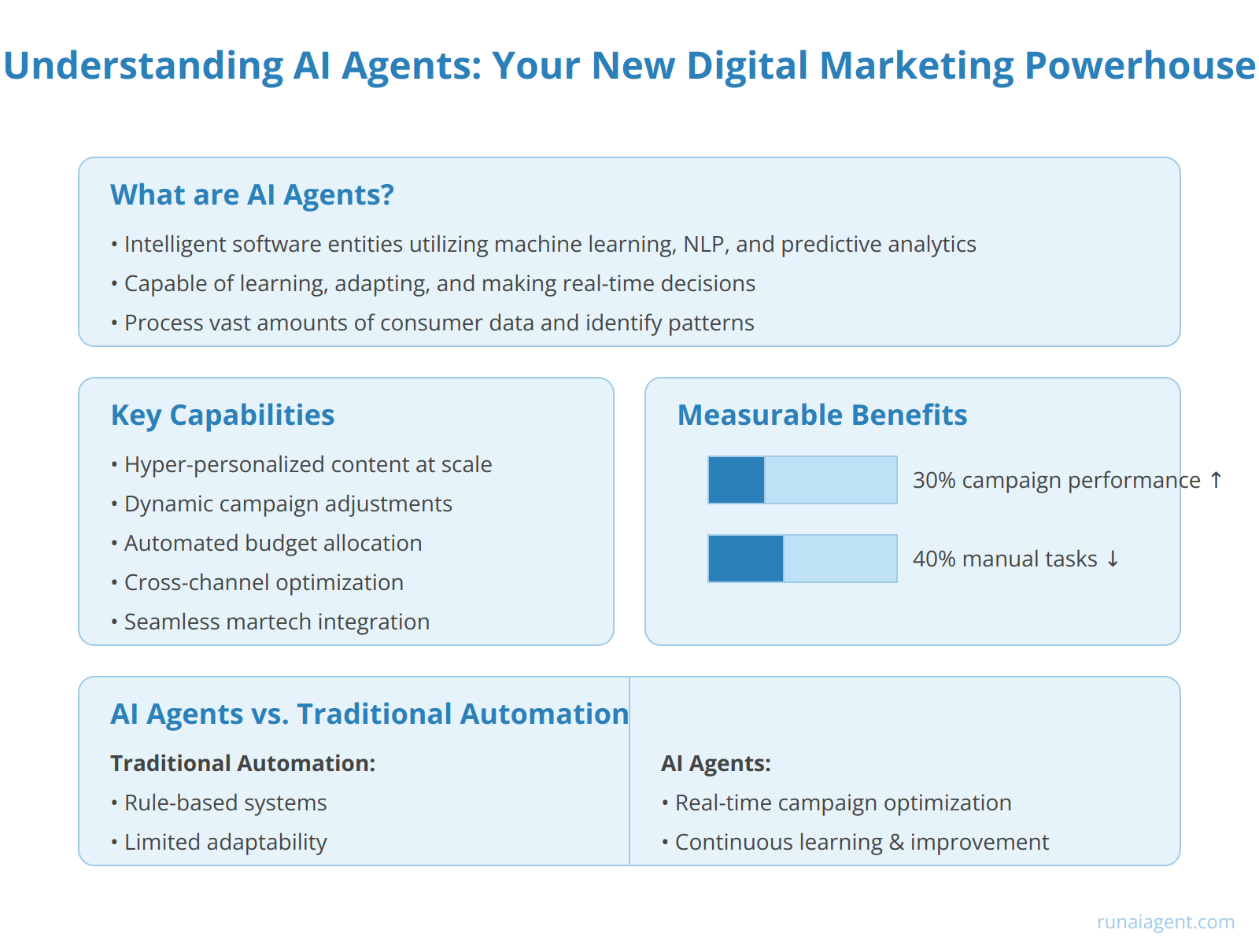
Understanding AI Agents: Your New Digital Marketing Powerhouse
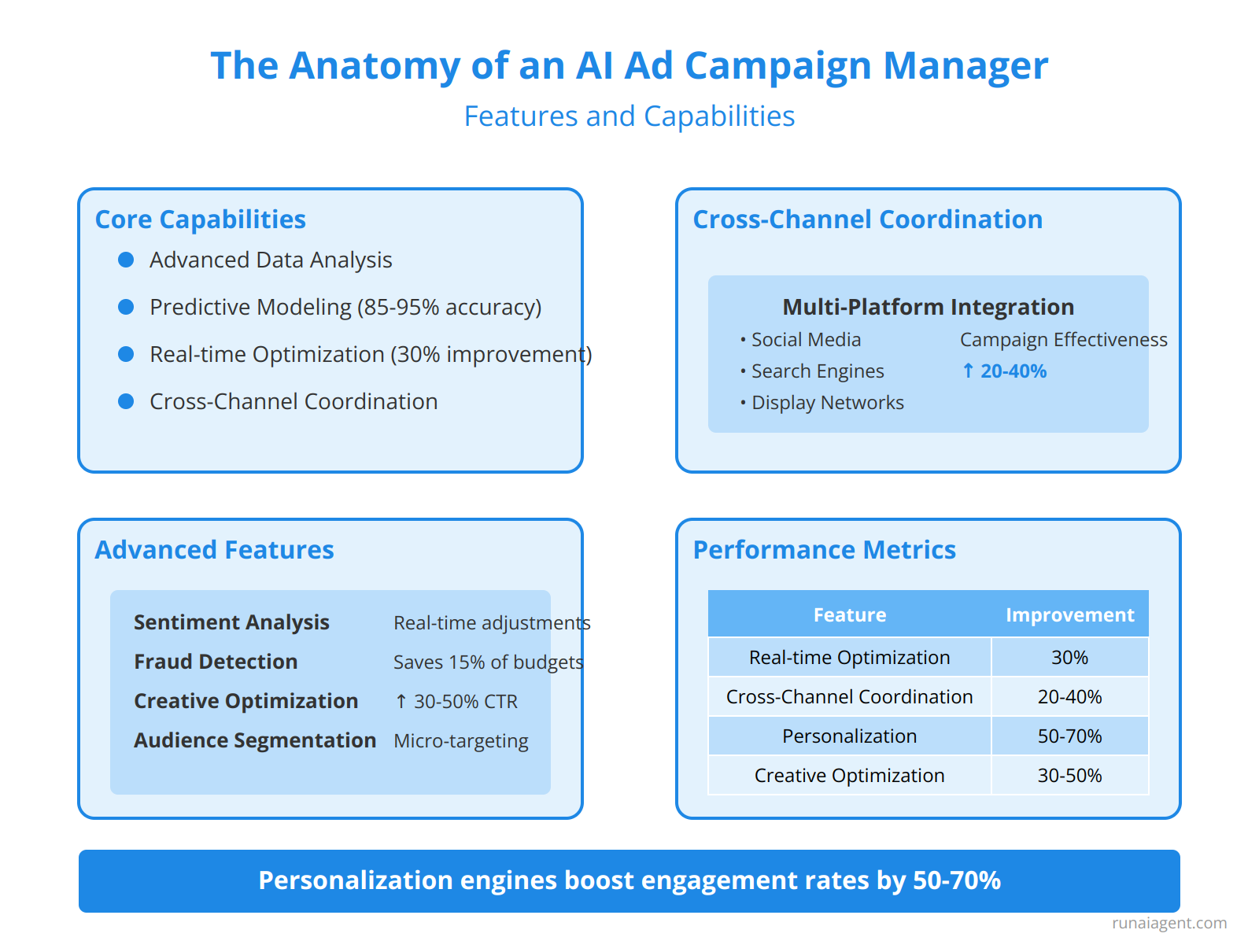
The Anatomy of an AI Ad Campaign Manager: Features and Capabilities
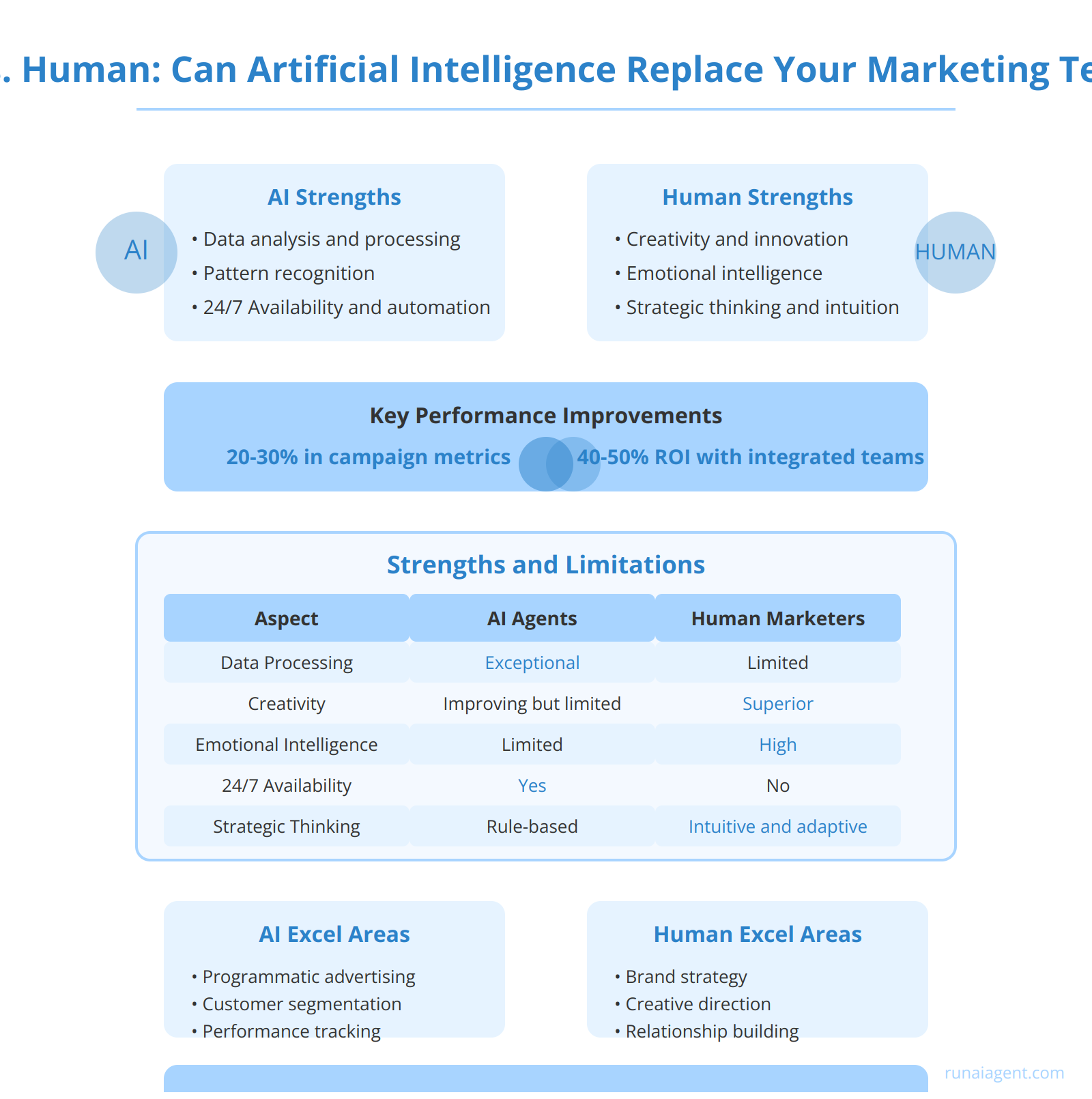
AI vs. Human: Can Artificial Intelligence Really Replace Your Marketing Team?
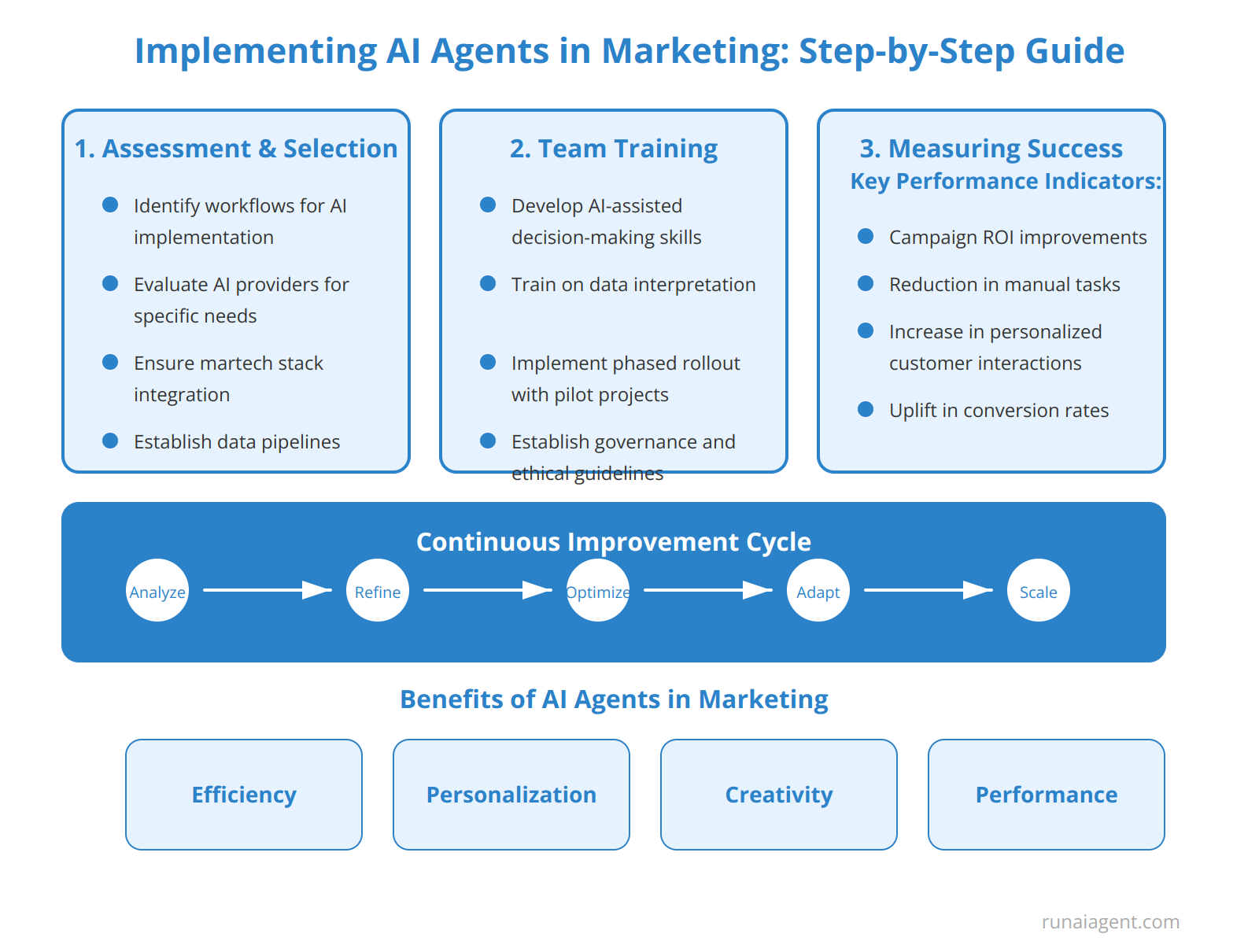
Implementing AI Agents: A Step-by-Step Guide for Marketing Departments
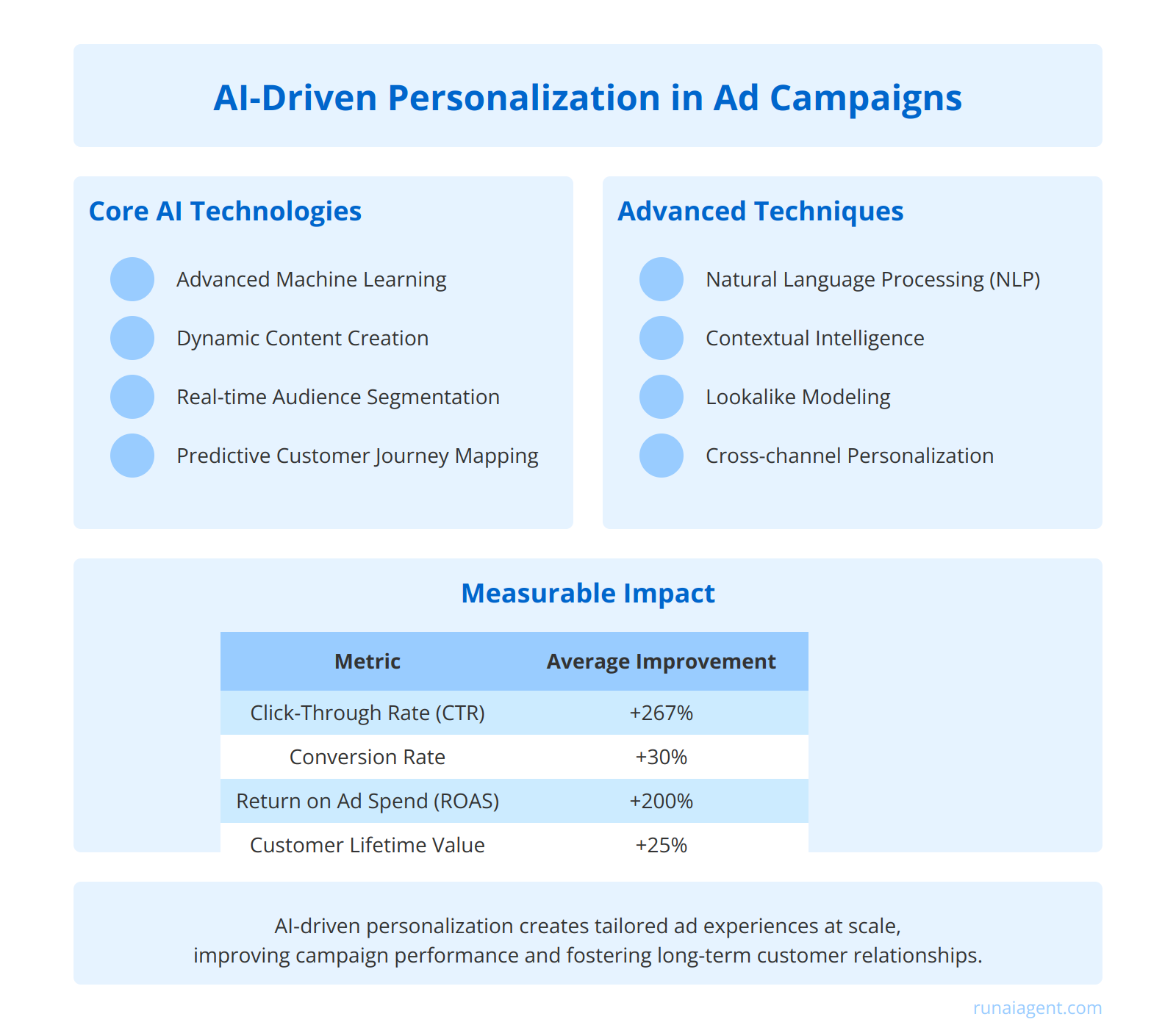
AI-Driven Personalization: Crafting Tailored Ad Experiences at Scale
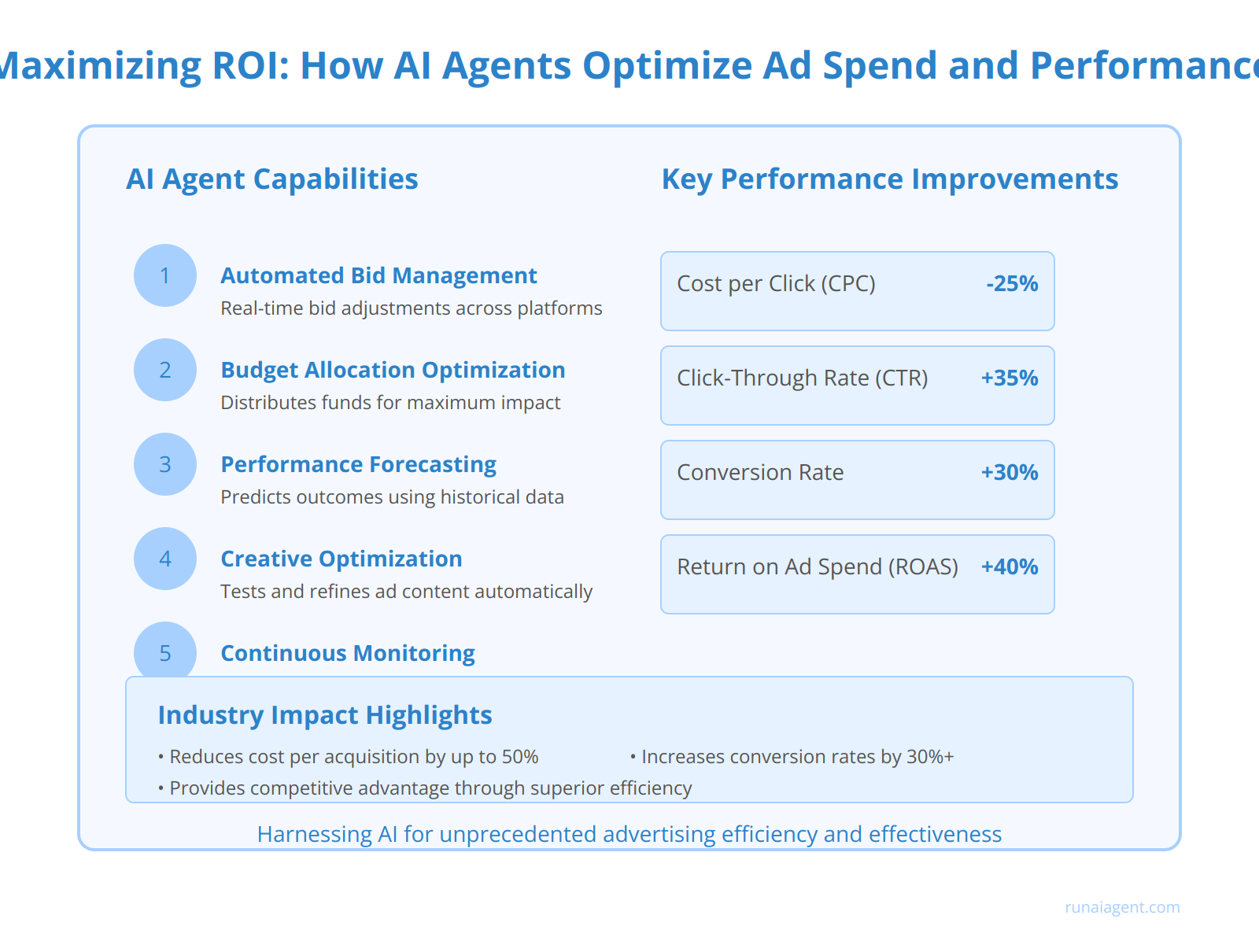
Maximizing ROI: How AI Agents Optimize Ad Spend and Performance
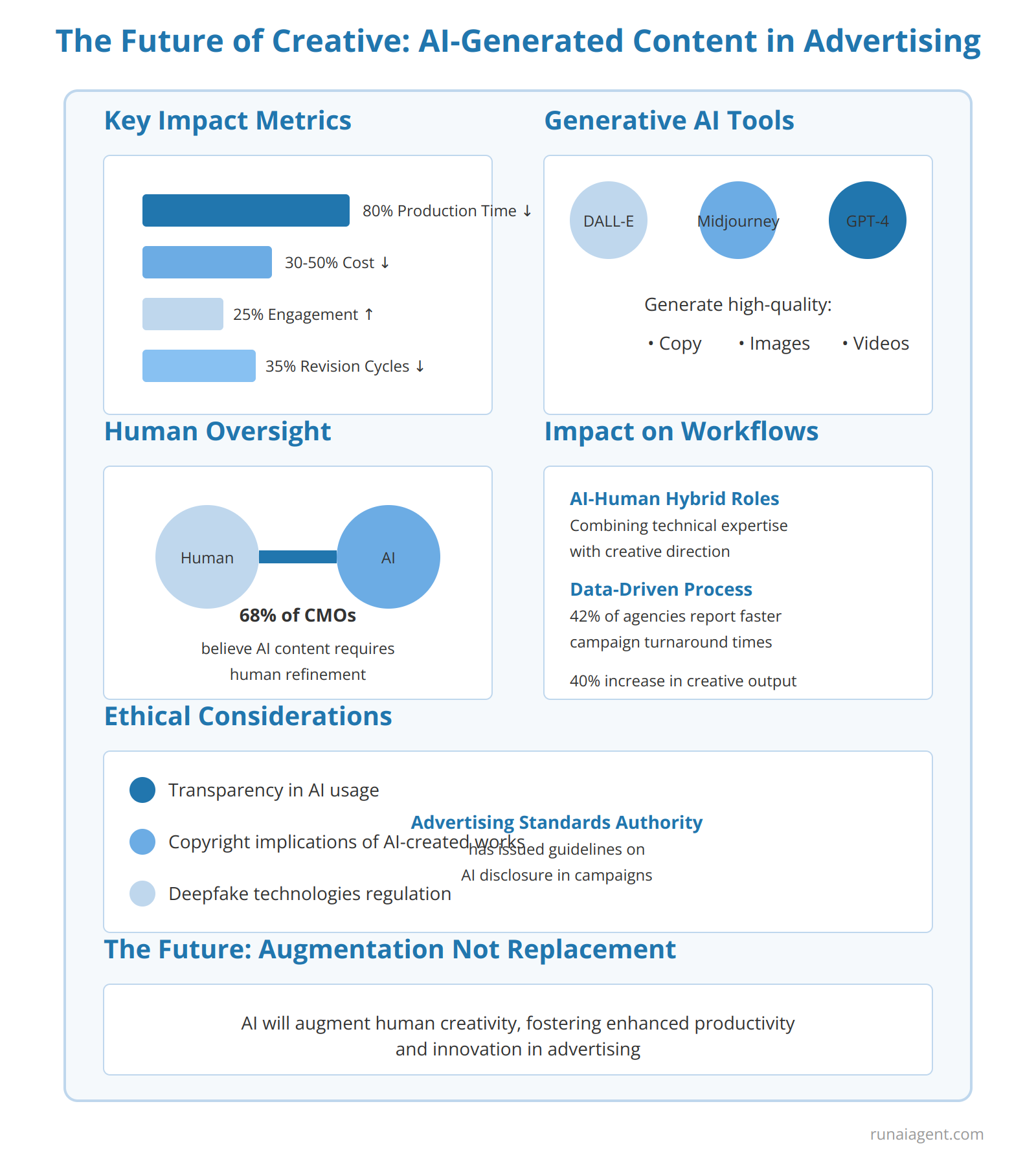
The Future of Creative: AI-Generated Content and Its Impact on Ad Campaigns
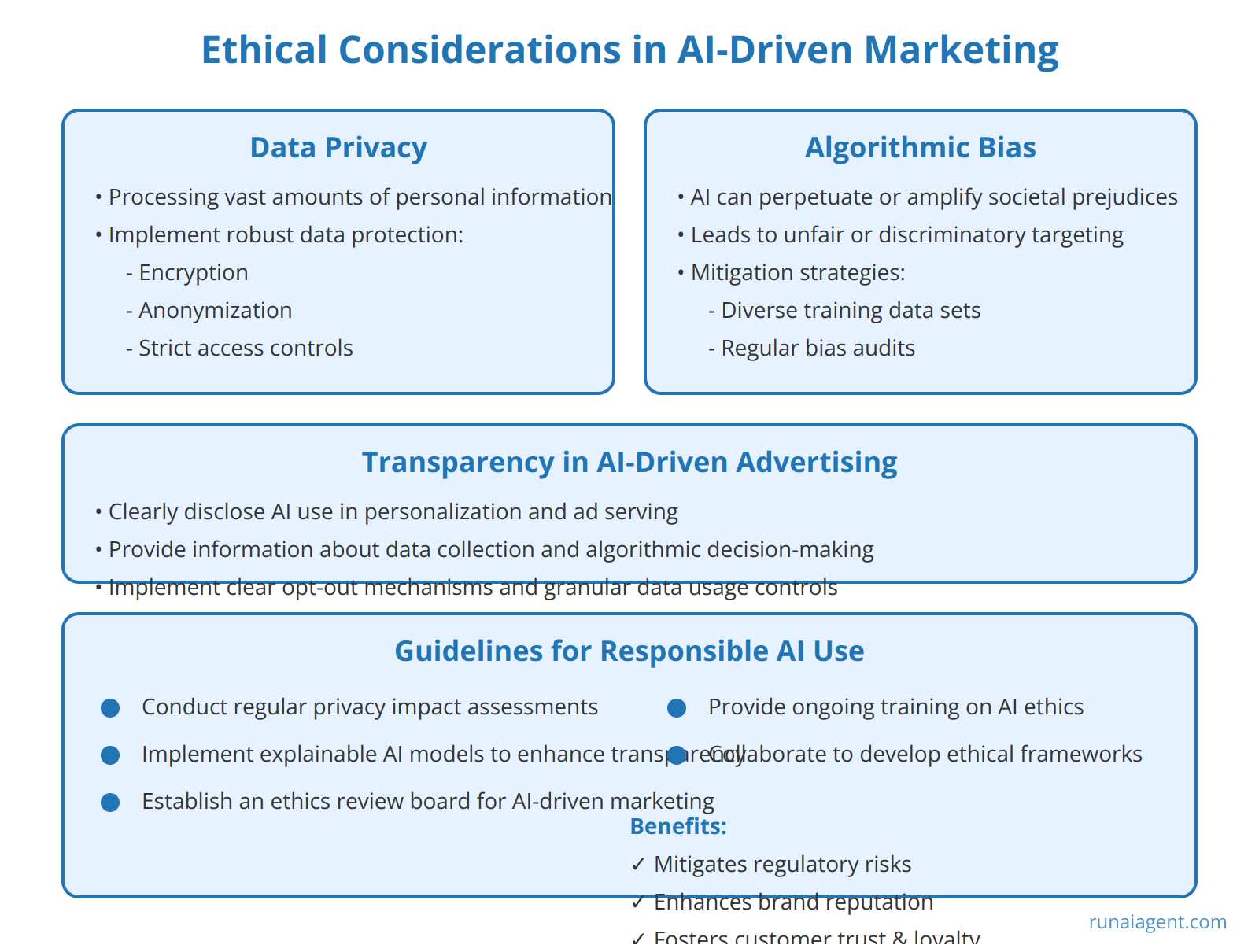
Navigating the Ethical Landscape: Privacy and Transparency in AI-Driven Marketing
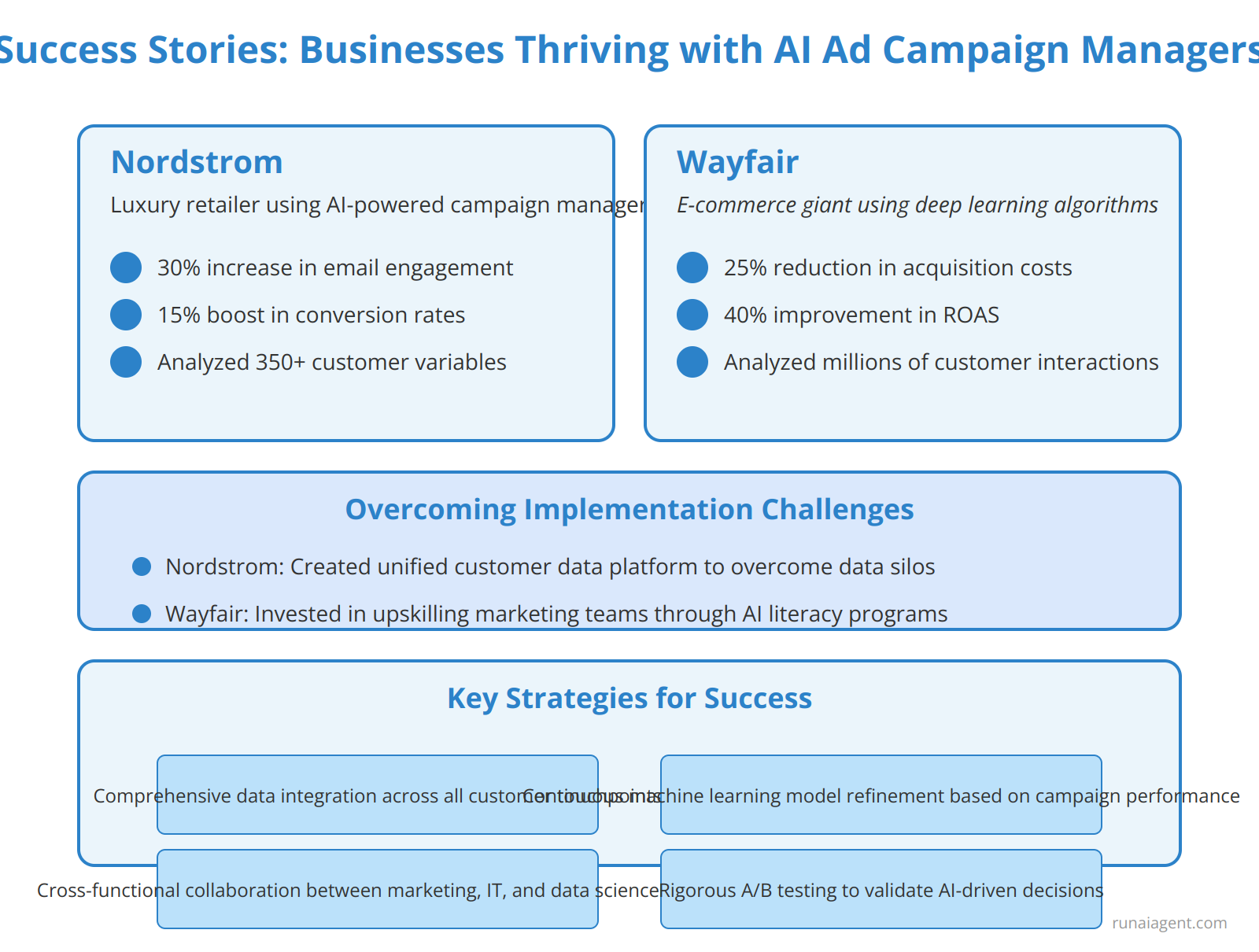
Case Studies: Success Stories of Businesses Thriving with AI Ad Campaign Managers
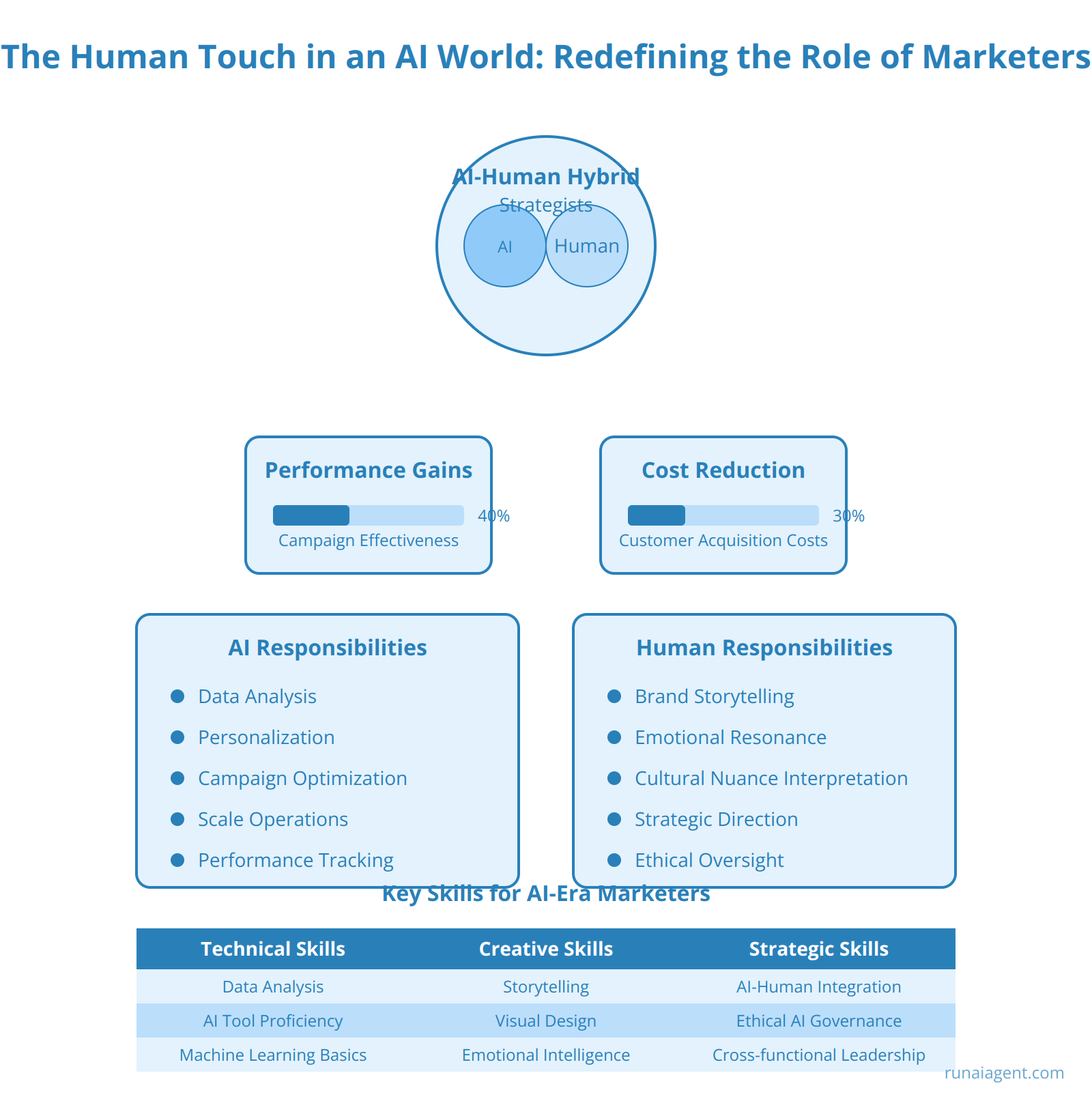
The Human Touch in an AI World: Redefining the Role of Marketers
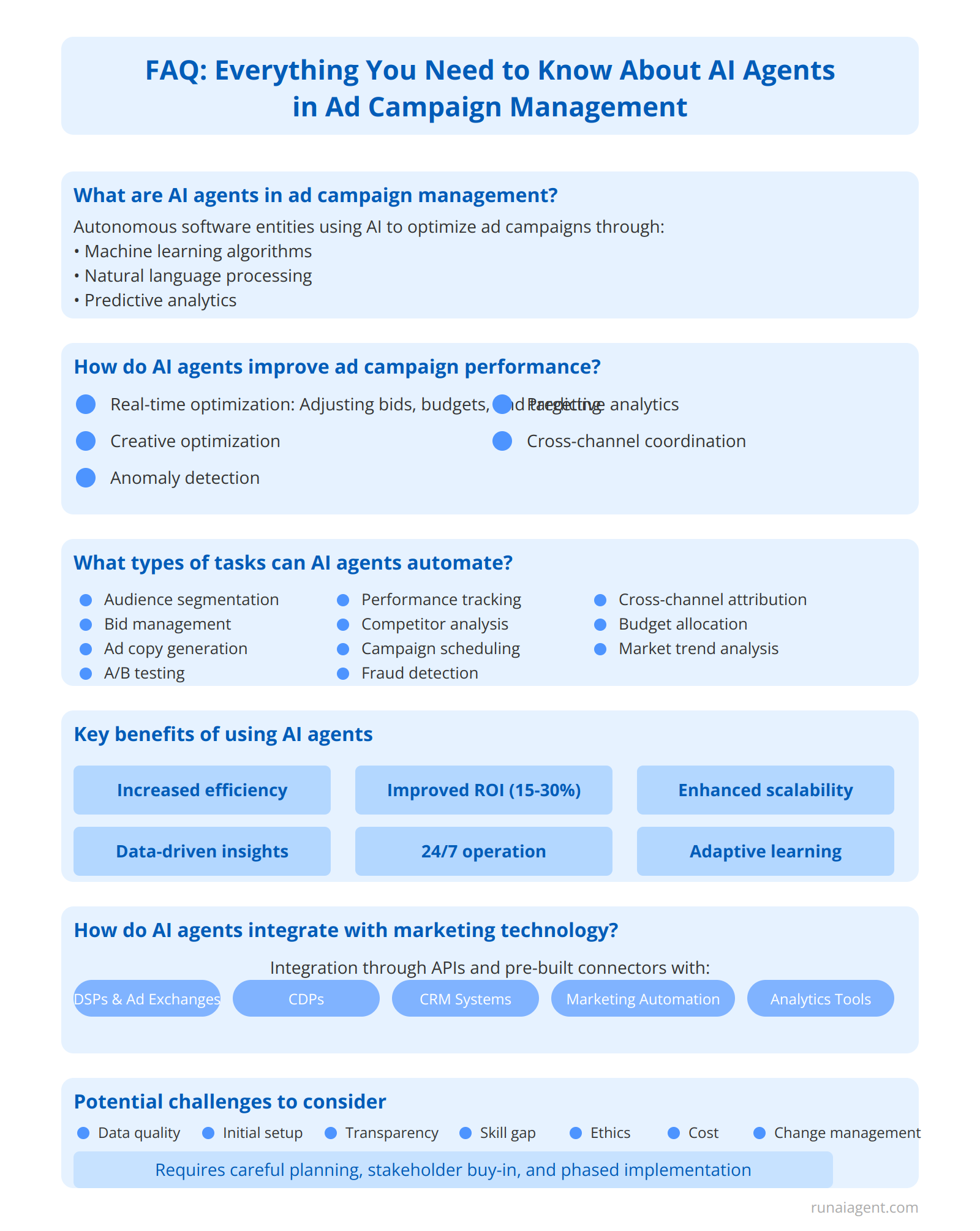
FAQ: Everything You Need to Know About AI Agents in Ad Campaign Management
The AI Revolution in Ad Campaign Management: Transforming Marketing Strategies
The integration of AI agents into ad campaign management is ushering in a new era of marketing efficiency and effectiveness. These intelligent systems are revolutionizing how marketers plan, execute, and optimize their advertising strategies across multiple channels. AI-powered campaign managers can analyze vast amounts of consumer data, predict trends, and make real-time adjustments to ad placements and content, resulting in unprecedented levels of personalization and targeting accuracy. Studies have shown that AI-optimized campaigns can improve click-through rates by up to 50% and reduce cost-per-acquisition by 30-40%. However, the implementation of AI in marketing processes is not without challenges. Marketers must navigate issues such as data privacy concerns, the need for AI-literate talent, and the integration of AI systems with existing marketing technology stacks. Despite these hurdles, the potential benefits are immense. AI agents can automate tedious tasks like bid management and budget allocation, freeing up human marketers to focus on creative strategy and brand storytelling. Moreover, these systems can identify micro-segments within target audiences and tailor messaging at scale, a feat previously impossible with manual methods. As AI continues to evolve, we can expect to see even more sophisticated applications, such as predictive content creation and dynamic ad sequencing, further transforming the landscape of digital advertising.

Understanding AI Agents: Your New Digital Marketing Powerhouse
AI agents represent a paradigm shift in digital marketing, far surpassing traditional automation tools in their capabilities and impact. These intelligent software entities leverage advanced machine learning algorithms, natural language processing, and predictive analytics to autonomously execute complex marketing tasks. Unlike rule-based automation systems, AI agents possess the ability to learn, adapt, and make decisions in real-time, optimizing marketing strategies across multiple channels simultaneously. They excel in processing vast amounts of consumer data, identifying intricate patterns, and delivering hyper-personalized content at scale. In the realm of ad campaign management, AI agents can dynamically adjust bidding strategies, optimize creative elements, and allocate budgets across platforms to maximize ROI. Their ability to continuously analyze performance metrics and market trends allows for real-time campaign optimization, a feat previously unattainable with human-managed campaigns. Moreover, AI agents can seamlessly integrate with existing martech stacks, enhancing the entire marketing ecosystem’s efficiency. As digital landscapes become increasingly complex, AI agents have emerged as indispensable tools for marketers seeking to maintain a competitive edge, with early adopters reporting up to 30% improvement in campaign performance and a 40% reduction in manual task loads.

The Anatomy of an AI Ad Campaign Manager: Features and Capabilities
AI ad campaign managers represent a paradigm shift in digital marketing, offering a sophisticated suite of features that revolutionize how businesses approach advertising. At their core, these AI agents leverage advanced data analysis capabilities, processing vast amounts of user behavior data, historical campaign performance, and market trends to inform strategic decisions. Predictive modeling algorithms utilize this data to forecast campaign outcomes with remarkable accuracy, often achieving 85-95% precision in ROI predictions. Real-time optimization stands out as a critical feature, with AI agents continuously adjusting bid strategies, ad placements, and creative elements to maximize performance, resulting in up to 30% improvement in campaign efficiency.
Cross-Channel Coordination and Personalization
Modern AI ad managers excel in cross-channel coordination, seamlessly orchestrating campaigns across multiple platforms such as social media, search engines, and display networks. This holistic approach ensures consistent messaging and optimal budget allocation, typically leading to a 20-40% increase in overall campaign effectiveness. Personalization engines within these AI agents analyze individual user profiles and behaviors to deliver hyper-targeted ad experiences, often boosting engagement rates by 50-70%.
Advanced Features for Enhanced Performance
- Sentiment Analysis: AI agents employ natural language processing to gauge audience reactions, adjusting messaging in real-time.
- Fraud Detection: Machine learning algorithms identify and filter out fraudulent clicks and impressions, saving up to 15% of ad budgets.
- Creative Optimization: AI-driven A/B testing and dynamic creative assembly can improve click-through rates by 30-50%.
- Audience Segmentation: Advanced clustering algorithms create micro-segments for ultra-precise targeting.
Performance Metrics and Reporting
AI ad campaign managers provide comprehensive, real-time reporting dashboards that visualize complex data sets into actionable insights. These systems often incorporate predictive analytics to forecast future performance trends, enabling proactive strategy adjustments. With automated report generation and anomaly detection, marketers can focus on strategic decision-making rather than data compilation, typically saving 15-20 hours per week in reporting tasks.
| Feature | Average Performance Improvement |
|---|---|
| Real-time Optimization | 30% |
| Cross-Channel Coordination | 20-40% |
| Personalization | 50-70% (engagement) |
| Creative Optimization | 30-50% (CTR) |

AI vs. Human: Can Artificial Intelligence Really Replace Your Marketing Team?
The debate surrounding AI’s potential to replace human marketers has intensified as AI agents demonstrate increasingly sophisticated capabilities in ad campaign management. While AI excels in data analysis, pattern recognition, and rapid decision-making, human marketers bring creativity, emotional intelligence, and strategic thinking that remain challenging to replicate. AI agents can process vast amounts of consumer data, optimize ad placements, and adjust bids in real-time with unprecedented efficiency, often achieving 20-30% improvements in campaign performance metrics. However, humans excel in understanding nuanced cultural contexts, crafting compelling narratives, and building authentic brand relationships. The most effective approach combines AI’s analytical prowess with human creativity and oversight. For instance, AI can generate thousands of ad variations and predict performance, while human marketers refine messaging and ensure brand consistency. This synergy has led to 40-50% increases in ROI for integrated AI-human marketing teams compared to traditional approaches. As AI capabilities evolve, the role of human marketers is shifting towards strategic direction, creative leadership, and ethical governance of AI systems, rather than being entirely replaced.
Strengths and Limitations
| Aspect | AI Agents | Human Marketers |
|---|---|---|
| Data Processing | Exceptional | Limited |
| Creativity | Improving but limited | Superior |
| Emotional Intelligence | Limited | High |
| 24/7 Availability | Yes | No |
| Strategic Thinking | Rule-based | Intuitive and adaptive |
While AI agents excel in tasks like programmatic advertising, customer segmentation, and performance tracking, human marketers remain essential for brand strategy, creative direction, and relationship building. The future of marketing lies not in AI replacement, but in AI augmentation, where technology enhances human capabilities to drive unprecedented marketing effectiveness and innovation.

Implementing AI Agents: A Step-by-Step Guide for Marketing Departments
To successfully implement AI agents in marketing departments, organizations must follow a structured approach that encompasses solution selection, data integration, team training, and performance measurement. Begin by conducting a thorough assessment of your marketing workflows to identify areas where AI can drive the most significant impact. Next, evaluate AI agent providers based on their ability to address your specific needs, such as campaign optimization, audience segmentation, or content personalization. Ensure the chosen solution integrates seamlessly with your existing martech stack, including CRM systems, analytics platforms, and content management tools. Data integration is crucial; establish robust data pipelines to feed high-quality, real-time information into your AI agents. This may involve centralizing data from disparate sources and implementing data cleansing protocols.
Team Training and Change Management
Prepare your marketing team for the integration of AI agents through comprehensive training programs. Focus on developing skills in AI-assisted decision-making, data interpretation, and creative collaboration with AI tools. Implement a phased rollout strategy, starting with pilot projects to demonstrate value and build team confidence. Establish clear governance structures and ethical guidelines for AI usage to ensure responsible implementation.
Measuring Success and Continuous Improvement
Define key performance indicators (KPIs) aligned with your marketing objectives to measure the impact of AI agents. These may include:
- Campaign ROI improvements
- Reduction in manual task hours
- Increase in personalized customer interactions
- Uplift in conversion rates
Regularly analyze these metrics and gather feedback from team members to refine your AI implementation strategy. Continuously optimize your AI agents by fine-tuning algorithms, expanding data sources, and adapting to evolving market conditions. By following this comprehensive approach, marketing departments can harness the full potential of AI agents to drive efficiency, creativity, and performance in their campaigns.

AI-Driven Personalization: Crafting Tailored Ad Experiences at Scale
AI agents are revolutionizing ad campaign management by enabling hyper-personalization at an unprecedented scale. These intelligent systems leverage advanced machine learning algorithms to analyze vast amounts of user data, including browsing history, purchase behavior, and demographic information, to create highly targeted ad experiences. Dynamic content creation powered by AI allows for the automatic generation of thousands of ad variations, each tailored to specific audience segments. This process, known as creative optimization, can increase click-through rates by up to 267% compared to static ads. Real-time audience segmentation takes personalization a step further by continuously refining user groups based on their interactions and preferences, ensuring that ads remain relevant throughout the customer journey. AI agents employ predictive customer journey mapping to anticipate user needs and deliver the right message at the optimal touchpoint, resulting in a 30% increase in conversion rates on average.
Advanced Techniques in AI-Driven Ad Personalization
Sophisticated AI agents utilize natural language processing (NLP) to analyze user-generated content and social media interactions, extracting sentiment and intent to further refine ad targeting. Contextual intelligence allows these systems to adapt ad content based on factors such as time of day, weather conditions, and current events, enhancing relevance and engagement. AI-powered lookalike modeling expands the reach of successful campaigns by identifying new audiences with similar characteristics to high-value customers, often leading to a 200% improvement in return on ad spend (ROAS). Furthermore, AI agents can orchestrate cross-channel personalization, ensuring a consistent and tailored experience across display ads, social media, email, and even offline touchpoints, creating a seamless omnichannel journey that increases brand loyalty and customer lifetime value.
Measurable Impact of AI-Driven Personalization
| Metric | Average Improvement |
|---|---|
| Click-Through Rate (CTR) | +267% |
| Conversion Rate | +30% |
| Return on Ad Spend (ROAS) | +200% |
| Customer Lifetime Value (CLV) | +25% |
By harnessing the power of AI-driven personalization, marketers can create highly effective ad campaigns that resonate with individual consumers at scale. This level of tailored engagement not only improves immediate campaign performance but also fosters long-term customer relationships, driving sustainable growth and competitive advantage in the digital advertising landscape.

Maximizing ROI: How AI Agents Optimize Ad Spend and Performance
AI agents are revolutionizing ad campaign management by significantly improving return on investment through sophisticated optimization techniques. These intelligent systems leverage machine learning algorithms to automate bid management, dynamically adjusting bids across multiple platforms in real-time based on performance data and market conditions. AI agents excel at budget allocation optimization, utilizing predictive analytics to distribute funds across channels, campaigns, and ad groups for maximum impact. By analyzing historical performance data and market trends, these agents can forecast campaign performance with remarkable accuracy, enabling marketers to make data-driven decisions and proactively adjust strategies. Advanced AI systems can even perform creative optimization, automatically testing and refining ad copy, images, and landing pages to boost conversion rates. In highly competitive industries, AI agents have demonstrated the ability to reduce cost per acquisition by up to 50% while simultaneously increasing conversion rates by 30% or more. Furthermore, these systems operate 24/7, continuously monitoring and optimizing campaigns to capitalize on emerging opportunities and mitigate potential losses, far outpacing human capabilities in terms of reaction time and precision.
Key Performance Metrics Improved by AI Agents
| Metric | Average Improvement |
|---|---|
| Cost per Click (CPC) | -25% |
| Click-Through Rate (CTR) | +35% |
| Conversion Rate | +30% |
| Return on Ad Spend (ROAS) | +40% |
By harnessing the power of artificial intelligence, marketers can achieve unprecedented levels of efficiency and effectiveness in their advertising efforts, ultimately driving superior business outcomes and competitive advantage in the digital marketplace.

The Future of Creative: AI-Generated Content and Its Impact on Ad Campaigns
AI-generated content is revolutionizing the advertising industry, transforming how ad campaigns are conceptualized, created, and executed. Generative AI models like DALL-E, Midjourney, and GPT-4 are now capable of producing high-quality copy, images, and videos at scale, reducing production time by up to 80% and cutting costs by 30-50%. These AI tools excel at generating personalized ad variations tailored to specific audience segments, with some platforms reporting a 25% increase in engagement rates for AI-optimized creative. However, limitations persist in AI’s ability to capture nuanced brand voices and evoke complex emotions. A recent survey of CMOs revealed that 68% believe AI-generated content still requires human oversight and refinement to maintain brand consistency and creative excellence. The integration of AI in creative processes is reshaping team structures, with a growing demand for “AI-human hybrid” roles that combine technical expertise with creative direction. As AI capabilities advance, the industry is witnessing a shift towards more data-driven, iterative creative processes, with 42% of agencies reporting faster campaign turnaround times and improved A/B testing capabilities. Despite concerns about job displacement, many experts predict AI will augment rather than replace human creatives, fostering a new era of enhanced productivity and innovation in advertising.
Impact on Creative Workflows
The adoption of AI in creative workflows is reshaping traditional ad production pipelines. AI-powered content management systems now facilitate seamless collaboration between human creatives and AI tools, enabling rapid prototyping and iteration. This synergy has led to a 35% reduction in revision cycles and a 40% increase in creative output volume. However, challenges remain in integrating AI-generated assets with existing brand guidelines and ensuring consistent quality across diverse campaign elements.
Ethical Considerations and Industry Adaptation
As AI-generated content becomes more prevalent, the advertising industry grapples with ethical considerations and regulatory challenges. Transparency in AI usage, copyright implications of AI-created works, and the potential for deepfake technologies in advertising are prompting industry-wide discussions. The Advertising Standards Authority has recently issued guidelines on AI disclosure in campaigns, signaling a shift towards more regulated use of AI-generated content in advertising.
| Aspect | Impact of AI-Generated Content |
|---|---|
| Production Time | 80% reduction |
| Cost Savings | 30-50% decrease |
| Engagement Rates | 25% increase |
| Revision Cycles | 35% reduction |
| Creative Output Volume | 40% increase |

Navigating the Ethical Landscape: Privacy and Transparency in AI-Driven Marketing
As AI agents revolutionize ad campaign management, marketers must grapple with complex ethical considerations to ensure responsible implementation. Data privacy stands at the forefront of these concerns, with AI systems processing vast amounts of personal information to optimize targeting and personalization. Marketers must implement robust data protection measures, including encryption, anonymization, and strict access controls, to safeguard consumer information. Algorithmic bias presents another significant challenge, as AI models can perpetuate or amplify existing societal prejudices, leading to unfair or discriminatory ad targeting. To mitigate this, organizations should employ diverse training data sets and conduct regular bias audits of their AI systems.
Transparency in AI-Driven Advertising
Transparency is crucial for building trust with consumers and regulators alike. Marketers should clearly disclose when AI is being used to personalize or serve advertisements, providing easily accessible information about data collection practices and algorithmic decision-making processes. This includes implementing clear opt-out mechanisms and giving consumers granular control over their data usage preferences.
Guidelines for Responsible AI Use in Advertising
- Conduct regular privacy impact assessments
- Implement explainable AI models to enhance transparency
- Establish an ethics review board for AI-driven marketing initiatives
- Provide ongoing training for marketing teams on AI ethics and best practices
- Collaborate with industry peers to develop standardized ethical frameworks
By adhering to these guidelines, marketers can harness the power of AI agents for ad campaign management while upholding ethical standards and fostering consumer trust. This approach not only mitigates regulatory risks but also enhances brand reputation and long-term customer loyalty in an increasingly AI-driven marketing landscape.

Case Studies: Success Stories of Businesses Thriving with AI Ad Campaign Managers
Several forward-thinking companies have leveraged AI agents to revolutionize their ad campaign management, achieving remarkable results. Luxury retailer Nordstrom implemented an AI-powered campaign manager that analyzed customer data across 350+ variables, resulting in a 30% increase in email engagement rates and a 15% boost in overall conversion rates. The AI agent optimized send times, personalized content, and dynamically adjusted offers based on real-time inventory levels.
E-commerce giant Wayfair deployed an AI ad campaign manager that utilized deep learning algorithms to analyze millions of customer interactions across multiple channels. This implementation led to a 25% reduction in customer acquisition costs and a 40% improvement in return on ad spend (ROAS). The AI agent’s ability to predict customer lifetime value and optimize bidding strategies across platforms was crucial to its success.
Overcoming Implementation Challenges
Both companies faced initial hurdles in integrating AI agents with legacy systems and training staff. Nordstrom overcame data silos by implementing a unified customer data platform, while Wayfair invested heavily in upskilling its marketing team through intensive AI literacy programs. These strategic moves were essential in maximizing the AI agents’ effectiveness.
Key Strategies for Success
- Comprehensive data integration across all customer touchpoints
- Continuous machine learning model refinement based on campaign performance
- Cross-functional collaboration between marketing, IT, and data science teams
- Rigorous A/B testing to validate AI-driven decisions
The success of these implementations underscores the transformative potential of AI agents in ad campaign management, demonstrating significant improvements in efficiency, personalization, and ROI when deployed strategically.

The Human Touch in an AI World: Redefining the Role of Marketers
As AI agents revolutionize ad campaign management, the role of human marketers is undergoing a profound transformation. Far from being replaced, marketers are evolving into AI-human hybrid strategists, leveraging their uniquely human capabilities alongside AI’s computational power. This shift demands a new skill set, blending technical proficiency with enhanced creative and strategic thinking. Marketers must now master data interpretation, AI tool manipulation, and algorithmic thinking to effectively collaborate with AI systems. However, human creativity remains irreplaceable in areas such as brand storytelling, emotional resonance, and cultural nuance interpretation. Successful human-AI collaboration in marketing hinges on a symbiotic approach, where AI handles data analysis, personalization, and optimization at scale, while humans focus on high-level strategy, creative direction, and ethical oversight. This synergy has led to remarkable outcomes, with AI-augmented marketing teams reporting up to 40% increase in campaign effectiveness and a 30% reduction in customer acquisition costs. To thrive in this new paradigm, marketers must cultivate adaptability, critical thinking, and cross-functional collaboration skills. The future belongs to those who can seamlessly integrate AI insights with human intuition, creating campaigns that are not only data-driven but also deeply resonant and culturally relevant.
Key Skills for AI-Era Marketers
| Technical Skills | Creative Skills | Strategic Skills |
|---|---|---|
| Data Analysis | Storytelling | AI-Human Integration |
| AI Tool Proficiency | Visual Design | Ethical AI Governance |
| Machine Learning Basics | Emotional Intelligence | Cross-functional Leadership |

FAQ: Everything You Need to Know About AI Agents in Ad Campaign Management
What are AI agents in ad campaign management?
AI agents in ad campaign management are autonomous software entities that leverage artificial intelligence to optimize, execute, and analyze advertising campaigns across multiple channels. These agents utilize machine learning algorithms, natural language processing, and predictive analytics to automate tasks such as audience segmentation, bid management, creative optimization, and performance reporting. By continuously analyzing vast amounts of data and making real-time adjustments, AI agents can significantly improve campaign efficiency and ROI.
How do AI agents improve ad campaign performance?
AI agents enhance ad campaign performance through:
- Real-time optimization: Continuously adjusting bids, budgets, and targeting based on performance data
- Predictive analytics: Forecasting campaign outcomes and identifying high-potential audience segments
- Creative optimization: Automatically testing and refining ad creatives for maximum engagement
- Cross-channel coordination: Orchestrating campaigns across multiple platforms for consistent messaging and optimal resource allocation
- Anomaly detection: Identifying and addressing performance issues or market changes quickly
These capabilities enable marketers to achieve higher conversion rates, lower customer acquisition costs, and improved overall campaign effectiveness.
What types of tasks can AI agents automate in ad campaign management?
AI agents can automate a wide range of tasks in ad campaign management, including:
- Audience segmentation and targeting
- Bid management and budget allocation
- Ad copy generation and optimization
- A/B testing of ad creatives and landing pages
- Performance tracking and reporting
- Competitor analysis and market trend identification
- Campaign scheduling and pacing
- Fraud detection and prevention
- Cross-channel attribution modeling
By automating these tasks, AI agents free up human marketers to focus on higher-level strategy and creative ideation.
What are the key benefits of using AI agents for ad campaign management?
The key benefits of implementing AI agents in ad campaign management include:
- Increased efficiency: AI agents can process vast amounts of data and make decisions in real-time, far exceeding human capabilities
- Improved ROI: By optimizing campaigns continuously, AI agents typically achieve 15-30% improvement in return on ad spend
- Enhanced scalability: AI agents can manage multiple campaigns across various channels simultaneously without compromising quality
- Data-driven insights: Advanced analytics provide deeper understanding of audience behavior and campaign performance
- Reduced human error: Automation minimizes mistakes in data entry, budget allocation, and other routine tasks
- 24/7 operation: AI agents work round-the-clock, ensuring campaigns are always optimized
- Adaptive learning: AI agents continuously improve their performance based on new data and outcomes
How do AI agents integrate with existing marketing technology stacks?
AI agents are designed to integrate seamlessly with existing marketing technology stacks through APIs and pre-built connectors. They can interface with:
- Demand-side platforms (DSPs) and ad exchanges
- Customer data platforms (CDPs)
- Customer relationship management (CRM) systems
- Marketing automation platforms
- Analytics and business intelligence tools
- Content management systems (CMS)
This integration allows for unified data flow, consistent decision-making across platforms, and holistic campaign management. Implementation typically involves a phased approach, starting with specific channels or campaigns and gradually expanding the AI agent’s scope as performance and trust are established.
What are the potential challenges of implementing AI agents in ad campaign management?
While AI agents offer significant benefits, there are several challenges to consider:
- Data quality and integration: AI agents require high-quality, integrated data to function effectively
- Initial setup and training: Configuring AI agents to align with specific business goals and campaign objectives can be complex
- Transparency and explainability: Some AI decision-making processes may be difficult to interpret, raising concerns about control and accountability
- Skill gap: Marketing teams may need additional training to effectively work alongside AI agents
- Ethical considerations: Ensuring AI agents adhere to privacy regulations and ethical advertising practices is crucial
- Cost: Initial investment in AI technology and ongoing maintenance can be significant
- Change management: Integrating AI agents may require adjustments to existing workflows and team structures
Addressing these challenges requires careful planning, stakeholder buy-in, and a phased implementation approach.

